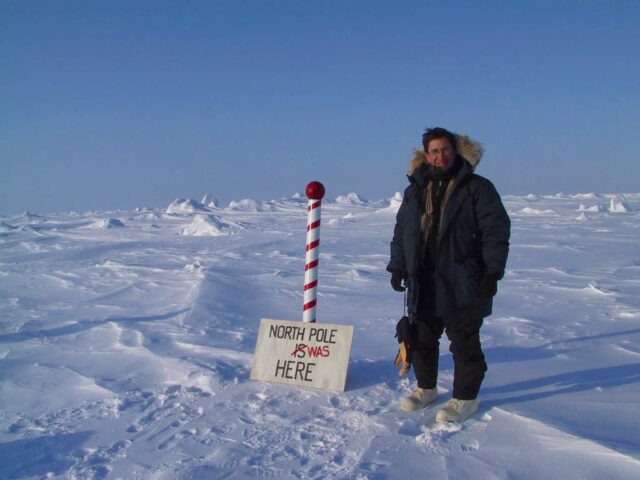
Andrew Revkin, renowned climate activist and journalist, will speak at Warren Wilson College’s Commencement on May 9, 2020.
Andrew Revkin, renowned science and environmental journalist, will give the keynote address at Warren Wilson College’s 2020 Commencement on Saturday, May 9, 2020.
Revkin is one of America’s most honored journalists focused on environmental and human sustainability. He has written on global environmental change and risk for more than 30 years, reporting from the North Pole to the White House, the Amazon rain forest to the Vatican – mostly for The New York Times.
He has won the top awards in science journalism multiple times, along with a Guggenheim Fellowship and Investigative Reporters & Editors Award. He has written acclaimed and award-winning books on the history of humanity’s relationship with weather, the changing Arctic, global warming and the assault on the Amazon rain forest, as well as three book chapters on science communication.
During the Commencement speech, Revkin will discuss the changing information age and its incredible power to foster connection, inclusion and understanding, but also to divide and deceive.
“In this age of multilayered rapid changes, I’ll stress the importance of testing one’s assumptions, building collaborative networks and honing a capacity for lifelong learning and experimentation,” Revkin said.
Dr. Lynn Morton, president of Warren Wilson College, said having Revkin speak at Commencement fits within the college’s strategic focus.
“As a reflection of our long-standing commitment to environmental sustainability, and because our campus sits on almost 1,100 acres of land, our 2022 Strategic Plan contains a strategic imperative on sustainability and land management that specifically names climate change as a focus for action,” Morton said. “We are honored and excited to have Andrew Revkin as our commencement speaker this May. He will bring a unique perspective after decades of reporting on climate change.”
In 2019, Revkin became the founding director of a new Initiative on Communication and Sustainability at Columbia University’s Earth Institute. There he is building programs, training tools and collaborations aimed at bridging gaps between science and society to cut climate risk and spread social and ecological resilience.
Previously, Revkin spent a year as a strategic adviser at the National Geographic Society, where he helped expand the Society’s funding, training and support systems for journalism and communication innovations. He remains a member of the National Geographic Society Executive Committee for Research and Exploration.
From 2016 through early 2018, he was the senior reporter for climate change at the nonprofit investigative newsroom ProPublica. From 2010 through 2016 he wrote his award-winning Dot Earth blog for The Times Opinion section and was the Senior Fellow for Environmental Understanding at Pace University.
Revkin was a staff reporter at The New York Times from 1995 through 2009, covering issues ranging from threats to New York City’s water supply to the devastating Indian Ocean tsunami and, of course, climate science and policy. In the mid 2000s, he exposed political suppression of climate findings at NASA and editing of federal climate reports by political appointees with ties to the petroleum industry. He made three Arctic reporting trips and was the first Times reporter to file stories, video and photos from the sea ice around the North Pole.
He began reporting on climate change for magazines in the 1980s.
“Staving off a nuclear catastrophe was my generation’s main task – and we achieved it by the skin of our teeth – at least for now,” Revkin said. “Building a sustainable relationship with climate and energy is every generation’s task from today forward.”
Revkin first visited Warren Wilson in 2009 during the Headwaters Gathering.
“I was blown away by the mix of passion and wisdom in Warren Wilson faculty and students focused on environmental stewardship. And it’s no surprise given the beautiful setting,” Revkin said.

Andrew Revkin reports on climate change from the North Pole